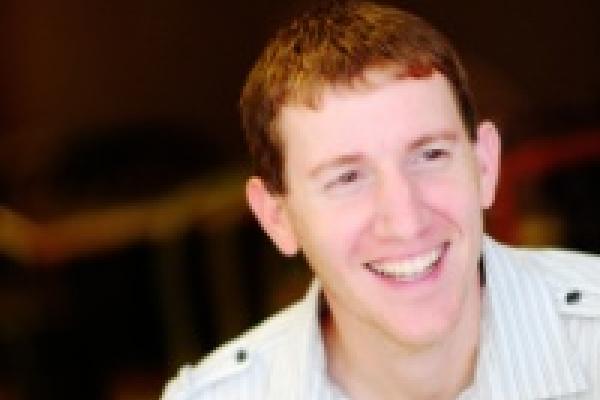One of the most gaping absences in church community often is a point of entry or transition for young adults. We do great with kids, and of course most congregations pant after the coveted “parents with kids” demographic. But what about after high school? How do we serve young adults as they transition to independence for the first time? How do we help them navigate the complexities of adult life, while helping forge in them a sense of character and mission informed by the Christian faith?
One organization taking on these difficult challenges in real, transformative ways is Mission Year. I sat down with Shawn Casselberry, Executive Director of Mission Year, to find out more about how they empower young adults to live out their values in the context of church, community, and even daily life.
What is your role and how long have you been involved with Mission Year?
I am the Executive Director for Mission Year, this diverse community of people committed to love God, love people, and work for justice in the city. I have been involved in the city and with Mission Year for the last 10 years.
Tell me more about Mission Year.
Mission Year is an entry point into a lifestyle of faith, community, service, and justice that provides Christian young people with the opportunity to become part of the life of an urban neighborhood in Atlanta, Chicago, Philadelphia, and Houston for one to two years. We come alongside what God is doing in the city by partnering with local churches, organizations, leaders, activists, and neighbors who are transforming their communities. Together, we are building a movement to bring hope and lasting change to the city, church, and world. We emphasize values of faith, community, service, neighborhood, partnership, solidarity, diversity, and justice.
Why do you do what you do?
I love to see people fall more in love with God and the city, come alive in their gifts and purpose, build beloved community across all dividing lines, and become lifelong advocates for justice.
What is distinctive about Mission Year versus other yearlong opportunities?
We are Christ-centered, neighborhood-focused, and justice-oriented. We practice living a life as Jesus lived it. We live, go to church, do laundry, grocery shop in the same urban neighborhood in order to build deeper relationships. We seek to understand God’s heart for justice, enter into solidarity with those who suffer from injustice, and find ways to advocate on their behalf.
We also provide ongoing support and training throughout the year, mentoring, retreats and reflection, college and graduate academic credit, loan deferment, housing and utilities, health insurance, groceries, and stipend. We help people find where their deepest passions meet the neighborhood’s greatest needs. We help people discover what makes them come alive.
What kinds of justice issues are you involved with?
We work in areas of education, homelessness, mentoring, arts, healthcare, legal aid, human trafficking, food justice, violence prevention, immigration, community development, and public policy to give hope and bring about lasting change in our communities.
Are you connected with any denomination?
We are a multi-denominational ministry. We welcome Christians from all across the theological spectrum to come together to love God and love people in the city. We want to see the Church come together on what we can agree on rather than dividing over what we don’t.
What does a typical week look like?
There are different things happening every week but we do have a basic structure. Every morning begins with a quiet hour for personal and team devotion. Monday-Thursday during the day is spent providing professional service to organizations and ministries in need of extra hands and help. We partner with schools, health clinics, homeless shelters, community development corporations, legal aid clinics, recreation centers, and a host of other nonprofits engaged in holistic service in the community. Evenings are set aside for community dinners, curriculum discussions around good books, and weekly trainings in practical issues around spirituality, justice, and engaging the city. Friday is a community day to spend time as a team, do groceries, laundry, write blogs and newsletters, etc. Saturday is devoted to building organic, authentic relationships with neighbors. This includes tutoring kids, inviting neighbors for meals, playing basketball, doing art, and other ways to connect with neighbors in natural ways. Sunday is Sabbath where teams attend a neighborhood church and then have the rest of the day for rest, reflection, and relaxing.
Who are you looking for?
We are looking for passionate, committed 18-29 year olds who want to be changed and want to see the world changed. We look for people who have a heart for loving God and loving people. We want people who are interested in learning, growing, and living out what they believe. If you have a heart for God, the city, and justice, we definitely want you!
What’s the process for people to become part of Mission Year?
They can apply online at www.missionyear.org. Our application deadline for the coming year is July 1. The yearlong program runs Sept-July.
Christian Piatt is a Sojourners Featured Writer and an author, editor, speaker, musician, and spoken word artist. He is director of church growth and development at First Christian Church in Portland, Ore. Christian is the creator and editor of Banned Questions About The Bible and Banned Questions About Jesus . His memoir on faith, family and parenting is called PREGMANCY: A Dad, a Little Dude and a Due Date .
Got something to say about what you're reading? We value your feedback!
